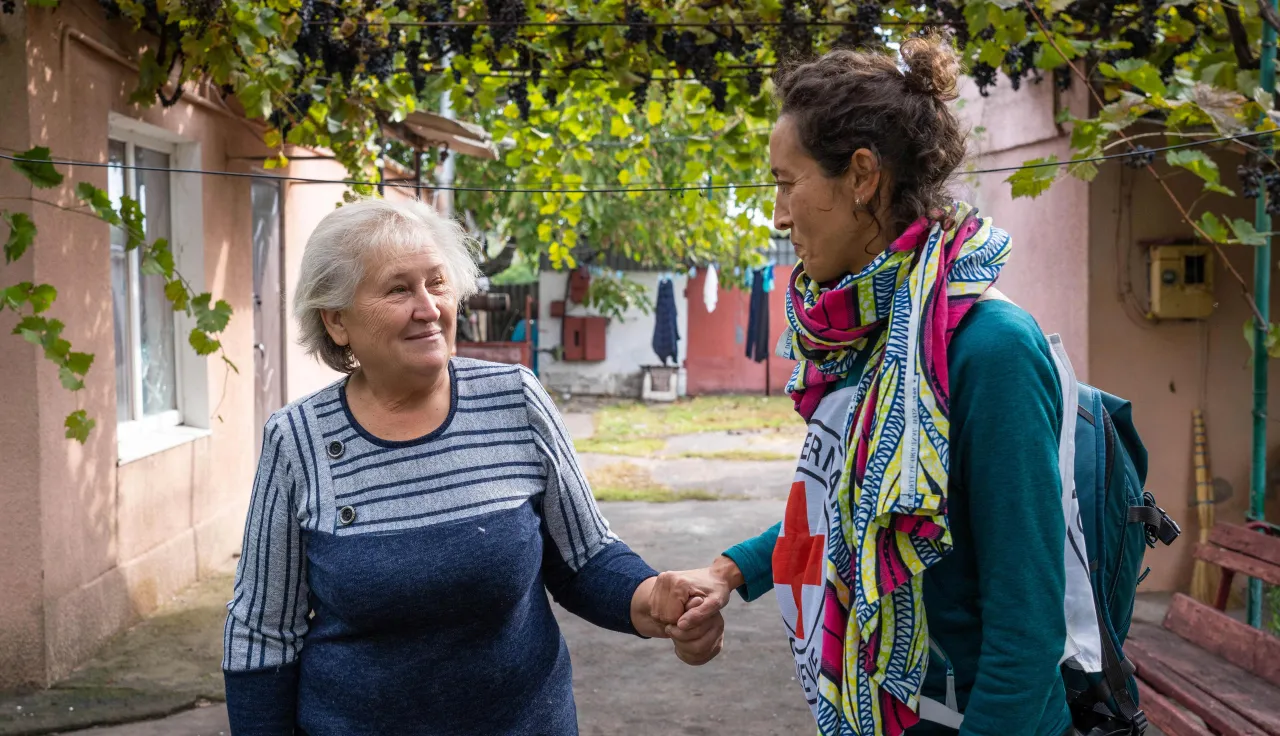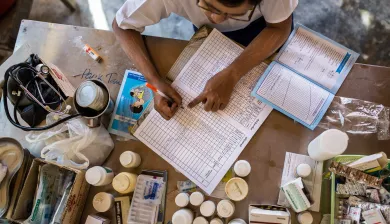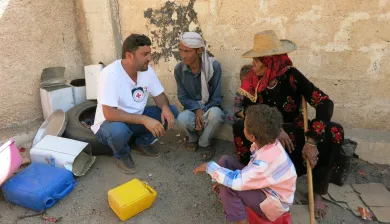Our mental health and psychosocial support projects
|
According to studies conducted by the World Health Organization, more than one in five people in conflict-affected communities are living with mental health issues, ranging from mild depression to more intense symptoms, such as post-traumatic stress disorder. These figures are alarming – that is three times higher than the general population worldwide. The ICRC's mental health and psychosocial support projects respond to the needs of different groups affected by armed conflict and other violence: from detainees who have endured ill-treatment to victims/survivors of sexual violence, families of missing people, those with disabilities and people forced to flee their homes and start over in a community or country that is not their own. In many countries, mental health and psychosocial needs are not well understood and as a result, people can face rejection, discrimination and stigmatization. This makes it difficult for them to get the assistance they need and leaves them vulnerable to ill-treatment. The mental health and psychosocial needs of people caught up in conflict must be a part of the growing attention given to mental health around the world. Although these needs have gained more prominence in recent years, worldwide there remains a large gap between what people need and their access to care. The ICRC aims to reduce this gap by building local capacities, with a view to stabilizing and improving the mental health and psychosocial well-being of individuals and communities. In 2020, we ran over 230 mental health and psychosocial support projects worldwide, reaching more than 554,000 people. |








